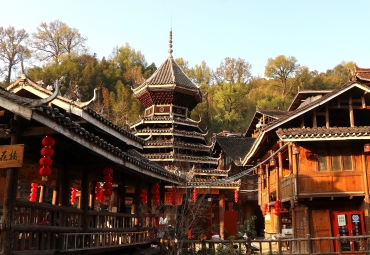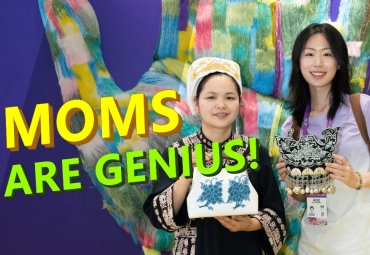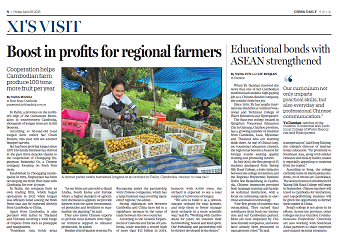Party member leads village to rural vitalization

Qinggangba village has seen its economy transformed since 2004. [Photo/colorful Guizhou network]
Leng Chaogang has been serving as the Party secretary of Qinggangba village in Tongren, Southwest China's Guizhou province, since 2004.
When he first started his term, the village was impoverished with a poor road network and barren lands.
To boost economic development, Leng started to plant watermelons and achieved 80,000 yuan ($11,246) in annual income. Impressed by the high yield, more than 10 families in the village became interested and followed Leng's lead in planting watermelons and garlic.
Currently, the village is developing green agricultural sectors such as forests, fruits, poultry and vegetables. In 2021, the village's per capita annual disposable income was 16,800 yuan, and the collective economy reached 58 million yuan.
Focusing on the construction of a new countryside, the village continued to improve infrastructure such as country villas, mountain roads, and cultural plazas, and encouraged all families to build small gardens in front of their homes, making the village look like a park.
According to Leng, the village now has more than 30 Party members, and each member is paired with two to three villagers to help them find employment and increase their incomes.
With the development of rural tourism, the village has helped more than 100 people find employment, and realized the transformation from primary industry to tertiary industry.
"The goal is to strengthen the village's economy and enrich the lives of local people. In the future, the village will continue to expand its collective economy, and improve the well-being of the people relying on the healthy natural environment", said Leng.
All rights Reserved. 京ICP备13028878号-8







 Overview
Overview Guiyang
Guiyang Guian New Area
Guian New Area Liupanshui
Liupanshui Anshun
Anshun Qianxinan
Qianxinan Qiandongnan
Qiandongnan Qiannan
Qiannan Zunyi
Zunyi Tongren
Tongren Bijie
Bijie Guizhou commits to culture preservation and rural vitalization
Guizhou commits to culture preservation and rural vitalization Guizhou voice at 2025 national two sessions
Guizhou voice at 2025 national two sessions Meet the 'genius moms' at Shenzhen cultural fair
Meet the 'genius moms' at Shenzhen cultural fair 

